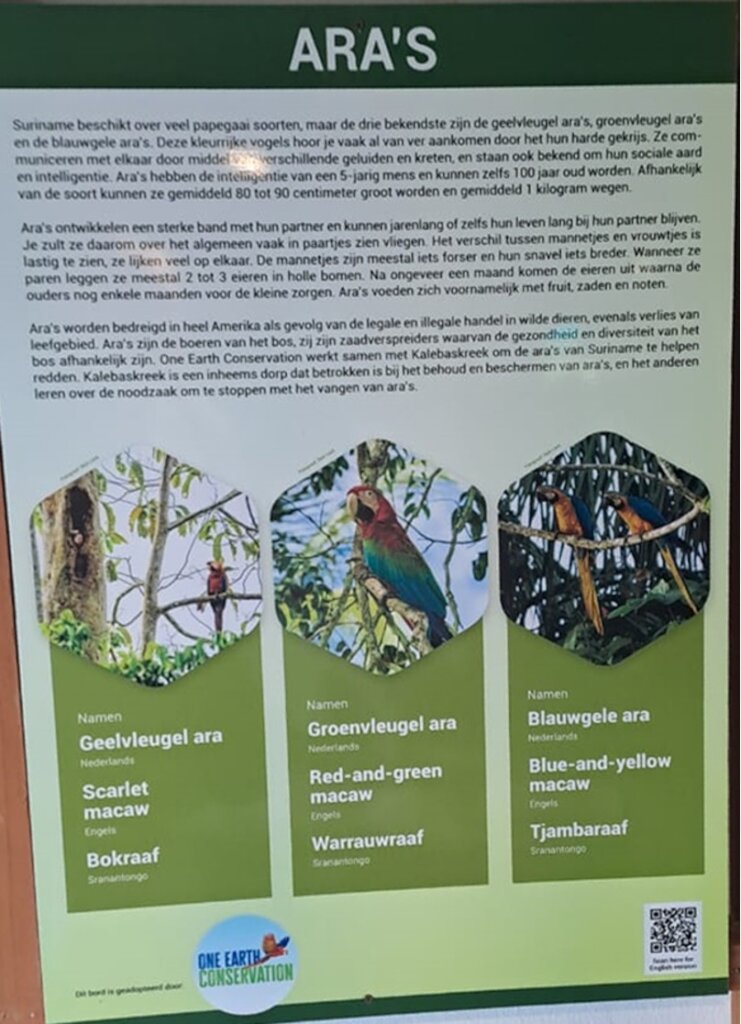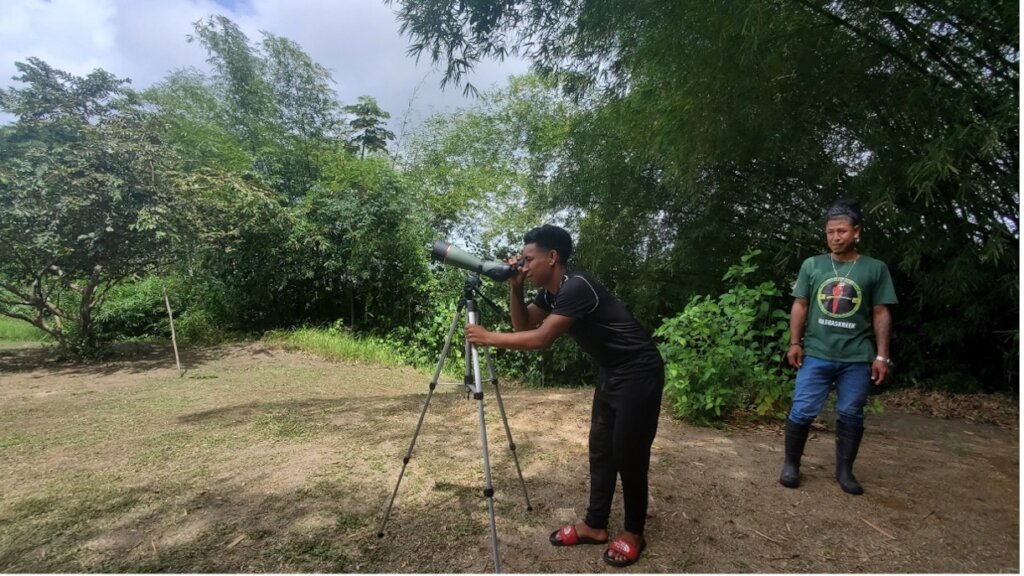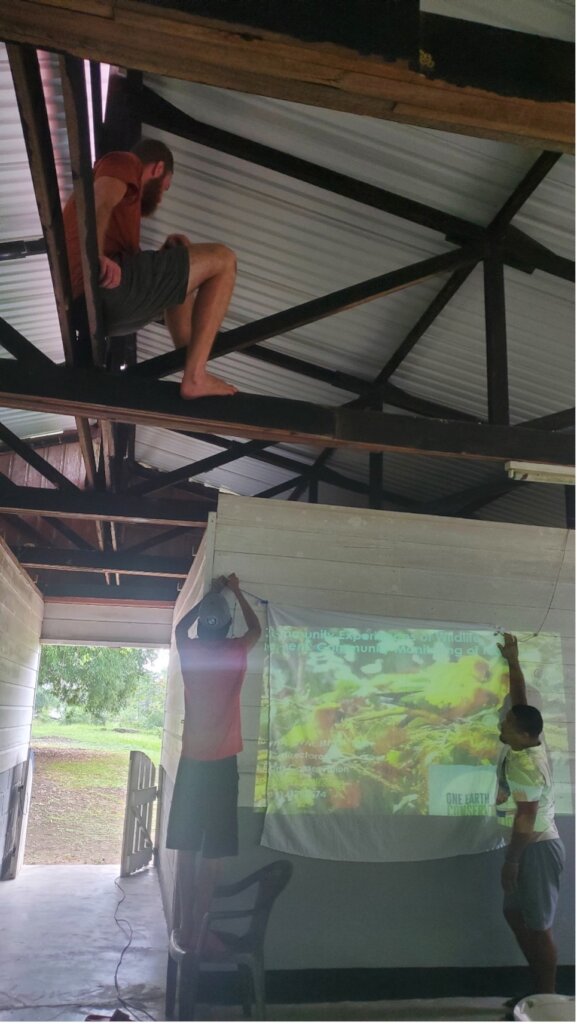By Gail Koelln | Co-director
During this time the active Parrot Rangers of Kalebaskreek communicated weekly through WhatsApp with Dr. LoraKim Joyner and were supported by other partners in the project from Paramaribo, Suriname and with stipends from One Earth Conservation. They worked steadily and diligently, concentrating their activities on parrot population and nest monitoring. Dr. Joyner visited in mid-May to support their administration and grow their capacity in field monitoring and conservation. They have a conservation plan in place from January 2024 that all parties adhere to well. We will revise this plan in the fall of 2024.
Every week the rangers complete several counts. They are doing 3 land-based point counts at the Farm, at the Soccer Field, and at Batavia. They also do a Coppename river float count and sometimes counts in other parts of the river and the swamp. They are now correcting their own forms and accurately recording parrot family groups. Every year they become more proficient in monitoring their parrots.
They have not begun official tourism activities as the village still needs to meet first to decide definitively if they wish to engage in and lead this program. Later in 2024 the village will develop their ecotourism plan if they decide to move ahead with this aspect of the project.
In previous reports we noted that the village indicated that they have not engaged in any trapping nor seen any trappers on the rivers. The country had not allowed exports of certain species of parrots, which limits the likelihood of trappers coming to the Kalebaskreek area. However, in June of 2024 a family of trappers came to the village and said they wanted to start trapping and the village requested support to stop this. At their request we will provide signage for the river and we wrote a draft letter for them to revise and send to the government requesting that no trapping permits be given for their village area.
Given the challenges and distances being monitored it is amazing that such good work is being performed by the rangers with a high level of commitment.
Links:
By Gail Koelln | Co-director
By Gail Koelln | Co-director
Project reports on GlobalGiving are posted directly to globalgiving.org by Project Leaders as they are completed, generally every 3-4 months. To protect the integrity of these documents, GlobalGiving does not alter them; therefore you may find some language or formatting issues.
If you donate to this project or have donated to this project, you can receive an email when this project posts a report. You can also subscribe for reports without donating.


